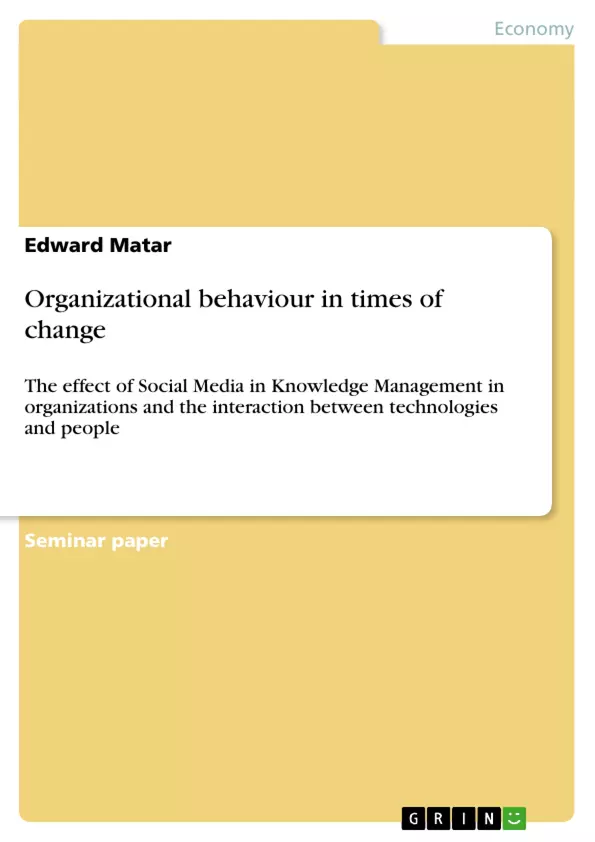Over the last years, the topic of knowledge management has rapidly grown in importance among business managers and information systems practitioners. Business organisations worldwide increasingly recognize the effective use of knowledge as a key-differentiating factor and as the most important resource for potential economic success (Stewart, 1998). As a result, many IT companies are implementing new applications and techniques to better manage knowledge.
Knowledge management systems are, in fact, quite common, but a truly successful one is rare. To be successful, such a system must create an environment in which people can share their best practices, increase the quality of their knowledge, and help each other solves problems. Systems that effectively capture and build intellectual capital while minimizing the burden on individuals, however, are unusual (King, 2002). Nowadays more and more organisations discovering social media tools like wikis, blogs, and forums and use them to capture knowledge.
Inhaltsverzeichnis (Table of Contents)
- Abstract
- Introduction
- Research topic
- Keywords
- 1. History
- 2. Economics:
- 3. Sociology:
- 3.1 Motivation to share knowledge in Companies
Zielsetzung und Themenschwerpunkte (Objectives and Key Themes)
This paper explores the impact of social media on knowledge management within organizations, focusing on the interplay between technology and human interaction. It examines how social media tools can facilitate knowledge sharing and capture, highlighting the importance of considering both technological and social aspects of knowledge management.
- The role of social media in knowledge management
- The interplay between technology and social systems in knowledge management
- The importance of knowledge sharing and utilization
- The challenges of managing social interactions for knowledge capture and utilization
- The influence of social media on traditional knowledge management practices
Zusammenfassung der Kapitel (Chapter Summaries)
The paper begins by providing a general overview of knowledge management and its evolution, emphasizing the growing importance of social media in this field. It then delves into the historical context of knowledge management, drawing upon insights from economics and sociology. The economic perspective highlights the learning process within organizations, particularly the concept of capturing and sharing experiences to improve efficiency. The sociological perspective focuses on social facts and the challenges of motivating knowledge sharing within companies.
The chapter on sociology further examines the factors that impede knowledge sharing, such as inadequate organizational structures and unsupportive cultures. It highlights the critical role of employee motivation in fostering a collaborative and knowledge-sharing environment. The paper also explores how some companies utilize incentives and reward systems to encourage knowledge sharing among employees.
Schlüsselwörter (Keywords)
The paper focuses on key concepts such as knowledge management, knowledge management systems, social media, intellectual capital, and technologies. It explores the impact of social media on traditional knowledge management practices and the need for a balanced approach that considers both technological and social aspects of knowledge sharing.
Frequently Asked Questions
What is the central focus of this paper?
The paper explores the impact of social media tools like wikis, blogs, and forums on knowledge management within organizations.
Why is knowledge management important for businesses today?
Effective use of knowledge is recognized as a key-differentiating factor and the most important resource for economic success.
What are the sociological challenges mentioned in the text?
The text discusses the motivation of employees to share knowledge and how inadequate organizational structures can impede this process.
What defines a successful knowledge management system?
A successful system creates an environment where people share best practices, solve problems together, and build intellectual capital with minimal individual burden.
Does the paper address economic perspectives?
Yes, it looks at the economic perspective of the learning process and how capturing experiences can improve organizational efficiency.
- Citation du texte
- Edward Matar (Auteur), 2012, Organizational behaviour in times of change, Munich, GRIN Verlag, https://www.grin.com/document/270008



